




|
E-mail : dynamicsolutionit@gmail.com Login Help : 📞 01686797756 📞 01722436067 📞 01767798403 Download AnyDesk ... |
+88-01686797756
Login
+88-01686797756 Login |
|
| * Manufacturing Software |
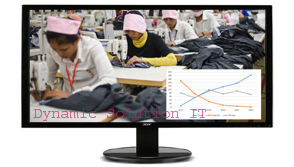
Raw Materials Purchase, Stock, Consumtion, Finished Goods, Stock, Sales, Damage, Barcode or Menual System, Cash Book, Party Ledger, Receipt & Payment, Income, Expense, Customer Due, Supplier Due, Profit & Loss and More...
User Menual Order Now |
| * Facilities of Manufacturing Software |
|
* Multi User System .
* Raw Materials Purchase . * Raw Materials Consumtion . * Product Damage. * Finished Goods. * Bill/Challan/Quotation/Money Receipt . * Debit Voucher/Credit Voucher. * Direct/Bill To Bill Collection . * Date Wise Sales Report . * Date Wise Sales Return Report . * Date Wise Due Sales Report. * Party Wise Sales Report . * Date Wise Purchase Report . * Date Wise Purchase Return Report . * Party Wise Purchase Report . * Date Wise Expenditure Report . * Date Wise Product Stock Report . * Date Wise Party Ledger Report . * Date Wise Party Due Report . * Date Wise Discount Report . * Date Wise Vat Report . * Date Wise Cash Book Report . * Date Wise Bank Balance Report . * Product Wise Profit Report . * Party Wise Profit Report . * Date Wise Income Statement Report . * Date Wise Expense Statement Report . * Date Wise Receipt & Payment Report . * Date Wise Profit Report . * SMS Integrated System . * Barcode or Menual User System . * Barcode Generate & Printing System . * Online & Offline System . * Data Backup System . |
| What Is Manufacturing Software? |
|
Manufacturing software is a tool that provides functionality to plan and execute projects from beginning to end, while automating materials planning, production tracking and scheduling and product lifecycle management. Benefits of Manufacturing Software Manufacturing software provides your business with several tangible benefits, including the following: Widens supply chain visibility. Manufacturing software (or an Enterprise Resource Planning system for manufacturing) can be integrated with other systems for a holistic view to make adjustments based on events throughout the supply chain. Stronger production planning. Production processes can be optimized when manufacturers analyze data and identify actual costs and time needed to complete specific steps in the process. Improved compliance management. Manufacturing software keeps a record of activities in the system, including materials used, maintenance tasks and safety measures, which helps you prove compliance during audits. Competitive Advantages of Using Manufacturing Software Our digital world requires that businesses adopt a sufficient level of technology just to remain competitive. Manufacturing software designed for your specific type of production helps your company: Scale your business. If you only have 100 contacts to deal with, then you might be able to keep all of their information straight using a simple Excel spreadsheet, or even pen and paper. Larger companies, however, deal with thousands or potentially millions of contacts and customers, which require CRM software in order to keep that information well-organized and accessible. Operate more efficiently. When everyone in your company has access to your customer and contact data, you can deal with those customers more efficiently and avoid the dangers of over or under-contacting them. You can also track those interactions and analyze that data for more efficient resource planning. Protect valuable intellectual property. A manufacturer's most valuable asset is usually their method of production, not the product itself. Software helps preserve and protect these trade secrets when combined with proper security tools. Business Segments Using Manufacturing Software Manufacturing software is used by many businesses, across a variety of production types. Each company has its own needs, but you'll likely fall into one of the following segments: Industrial machinery. These types of manufacturers produce a wide variety of equipment or materials used for machinery or infrastructure, typically for other companies or organizations. Food and beverage. Producers of food and beverages have stricter regulations and guidelines to follow to ensure product quality, and more importantly, safety and compliance. Electronics. Electronic device production usually involves partnering with a number of third-parties to perform certain processes or supply parts and materials produced elsewhere. Managing these relationships is crucial to this segment. Features Guide A List of Common Manufacturing Features When comparing manufacturing software, it's important to understand the functionality included in each. The most common functions of these systems are listed in the table below: Material requirements planning (MRP) Automates the front end of the production process. Functions include planning and costing of materials, labor and equipment; automated quoting; order processing and resource scheduling. Systems should also process advanced shipping notification from suppliers to reduce receiving errors and report any changes in cycle counts for inventory management. Manufacturing execution system (MES) Controls the actual production phase and shop floor operations. Functions include work-in-progress reporting, production tracking, labor tracking, equipment utilization and scrap reporting. Manufacturing accounting Manages all of the financial transactions and operations for a company. In addition to the traditional accounting functions, which include general ledger, accounts payable, accounts receivable, inventory and payroll, the accounting application offers support for sales orders, purchase orders, change orders, work-in-progress reports and job costing modules. Production planning & scheduling Creates production schedules, which includes reviewing inventory levels, tracking lead times and making build-versus-buy decisions. This is a subset of MRP; planning and scheduling does not generally include automatic ordering or inventory tracking functionality. Product life cycle management (PLM) Organizes all manufacturing information around the designing, producing, supporting and disposing of manufactured goods. May include computer-aided design software, bill of materials data and document management. Feature Details and Examples Material requirements planning (MRP): An MRP functions to ensure the various factors that make up the final process and product come together, which involves a bill of materials, labor and equipment costs, reordering for inventory, scheduling production tasks for machines and generating quotes. An MRP is fundamentally used to manage all of the events that drive production efficiency. A bill of materials in Fishbowl Manufacturing Manufacturing execution system (MES): A manufacturing execution system is specifically designed to help companies optimize their production efficiency and quality. An MES takes and executes the production plan created in the MRP, which includes the bill of materials, schedules for production machines, inventory requirements and more. The system also tracks machine use so scheduling can be maximized. A dashboard view of all production machines in Global Shop Solutions' One-System ERP Manufacturing accounting: This functionality manages all the financial records of the company, focusing on the costs and revenue from production. Some items are specific to the manufacturing process—such as sales orders, purchase orders, change orders, work-in-progress reports and job costing modules. When integrated with an ERP or standalone accounting software, this gives you a valuable view into the financial impact of production. EVO~ERP's financial records table Production planning and scheduling: This feature works to help companies make more analytics-driven decisions about dividing up work, based on available capacity instead of just total capacity. This way, managers can prioritize jobs that are more critical to the business and shift others around intelligently. This functionality is particularly useful for make-to-order or highly complex manufacturing processes. A scheduling view in E2 Shop System Manufacturing Software Buyers' Top Requested Features Software buyers typically ask for a few key features most often—ones like MRP and MES, which are manufacturing-specific. Accounting, quality management and supply chain-related functionality are requested to compliment the core systems. Top Requested Manufacturing Software Features Pricing Guide How Manufacturing Software Is Priced and Hosted Due to the specificity of needs and requirements for which manufacturing software is developed, companies can almost always find a system that fits their budget and deployment model. However, manufacturing vendors don't publish full pricing details on their websites and instead ask you to call for a price quote based on your company's needs. Pricing models run the gamut, from subscription-based models paid monthly to one-time, upfront payments. While cloud-based software is a popular choice for most industries today, the traditional on-premise deployment—where the vendor installs the system on your hardware—can offer greater control over the data produced on your shop floor. Alternatively, the cloud-based model offers a greater level of convenience and (typically) a much lower upfront cost. What Businesses Typically Budget for Manufacturing Software Looking at a recent sample of manufacturers who call us for software, most (77 percent) say they don't have a preference between cloud or on-premise systems. That's normal—these buyers usually want to weigh other factors before deciding on how the system is delivered. Cloud-based software is very often subscription-based, but vendors may have monthly pricing or perpetual license for both types of deployment. During discussions with our software advisors, buyers relayed their expected budgets for each pricing model: (Please note that these prices do not include any potential up-front fees, such as installation and training.) Budget for Manufacturing Software, Monthly Subscription Per User Budget for Manufacturing Software, Perpetual License Hidden Costs of Manufacturing Software Due to the complexity of a manufacturing environment, a handful of hidden costs exist in the form of services that get the system to perform the way you want and to help your employees and managers to use it correctly. Training and support services are critical to the long-term value of the system, including hands-on instructions and ongoing upgrades. Installation costs are likely required so the vendor can help integrate the system with your specific manufacturing situation. Customization may be necessary to tweak the user interface or make other changes to avoid cumbersome workarounds. This can increase the total cost. Vendors may also provide hardware, such as sensors or controllers for more visibility and remote management, which are separate purchases. What Are the Key Functions of Manufacturing Software? To recap, manufacturing software offers some key functionality: Material requirements planning (MRP). Manages the materials and components, including costs, labor and equipment needs. Manufacturing execution system (MES). Gives users control over shop floor operations and tracks key performance indicators for labor, production and asset usage. Manufacturing accounting. Keeps a record of financial transactions—a general ledger, accounts payable and receivable, inventory, payroll and more. Production planning and scheduling. Helps create production plans while factoring in inventory levels, existing jobs and real-time machine capacity for a more realistic schedule. What Questions Should I Ask Vendors When Evaluating Manufacturing Products? Demos of the system can give you a feel for whether the product is a good fit. Evaluate manufacturing software carefully and ask questions based on your specific needs, production type and business goals. Some of these questions may include: What features of your system are particularly useful for my type of manufacturing? Depending on your production situation, you may be able to distinguish among a few top products by the functionality that is designed for your needs. What parts of the software do users most frequently report problems with? It's important to get a sense of the common issues users have with the system. This can reveal ongoing problems and the strengths and weaknesses of the vendor's support services. What are the set-up costs for the software? This question is especially important for manufacturing vendors. You'll likely need some help integrating the system properly due to the complexity of a manufacturing setting. What are some popular add-on modules or hardware? Most vendors offer extra modules that add niche or advanced functionality. Make sure to ask vendors about these options to understand which are most valuable to customers similar to you. What Are the Differences Among MRP, MRPII and ERP? The manufacturing software market is evolving, leading to multiple systems with overlapping functionality. It can be confusing, but we have research to make things more clear: MRP vs. MRP II: What's the Difference? How Can I Develop a List of Manufacturing Needs? We've delved into the vast amount of options for manufacturing software buyers and laid them out in a couple of reports about ERP modules and ERP feature comparison. Review our research and create a list of necessary features and those you want to implement later. What Can Enterprise Vendors Offer? May be you're a larger manufacturer and need something robust to help keep your operations healthy. |
| * POS | Super Shop Software |
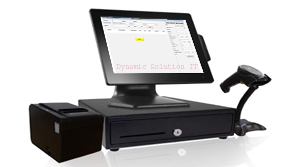
Purchase, Sales, Stock, Barcode or Menual System, Cash Book, Party Ledger, Receipt & Payment, Income, Expense, Daily Sales, Daily Purchase, Customer Due, Supplier Due, Profit & Loss and More...
Read More ... Order Now |
| * Computer | Mobile | Electronic Item Shop Software |
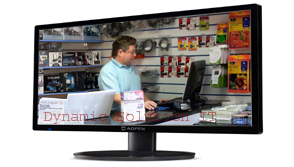
Purchase, Sales, Stock, Warranty, Gurrantee, Repair list, Gift, Barcode or Menual System, Cash Book, Party Ledger,
Receipt & Payment, Income, Expense, Customer Due, Supplier Due, Profit & Loss and More...
Read More ... Order Now |
| * Software & Web Design Developing |
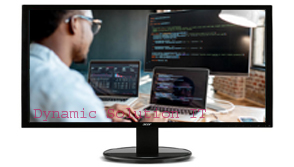
Requirement Study, Analysis, Planning, User Friendly,
User Acceptance Testing, Quality Assurance, Designing, Programming,
Final Testing, Training, Delivery & More...
Read More ... Order Now |
| * Accounts,HR & Payroll Software |
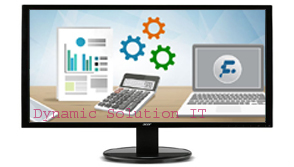
Customer Ledger, Supplier Ledger, Bank Ledger, Employee Profile, Employee Attendance, Employee Ledger, Salary Out, Income Statement, Expense Statement,
Cash Book, Receipt & Payment, Trail Balance, Balance Sheet, Profit & Loss and More...
Read More ... Order Now |
| * School & College Management Software |
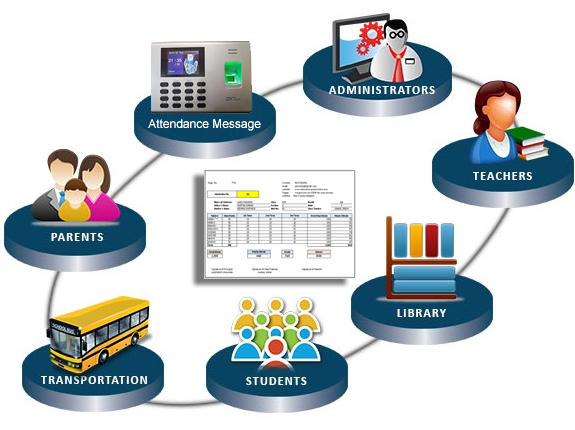
Student, Teacher, Employee Profile Entry, Attendance System & Reporting with mobile sms notification,
Result Processing & Publishing in Website, Student Due Reports, Accounts,
Any Notice Sent to Guardian Mobile Using Messaging System & More...
Read More ... Order Now |
| * Hospital | Clinic Management Software |
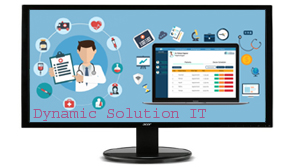
Outdoor,Indoor/Admitted Patient Module, Laboratory Information Module, Radiology Module, Diagnosis Module,
Reporting Management Module, Administration Management Module, Doctors Module, Billing and Accounting Module & More...
Read More ... Order Now |
|
| 2020 Dynamic Solution IT All Rights Reserved. |